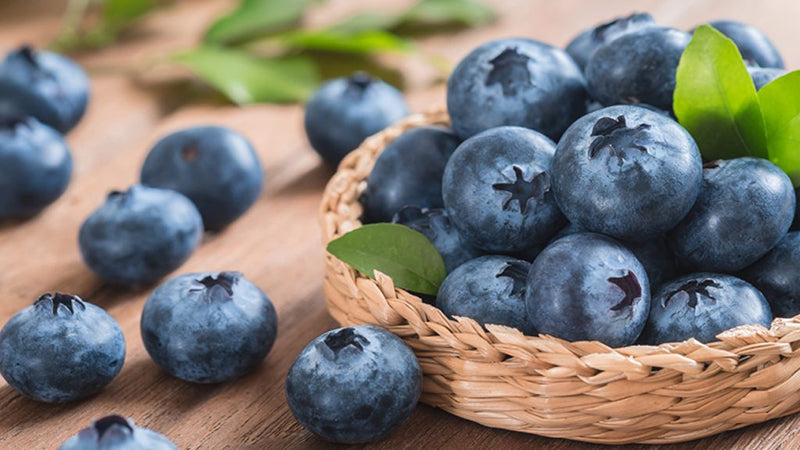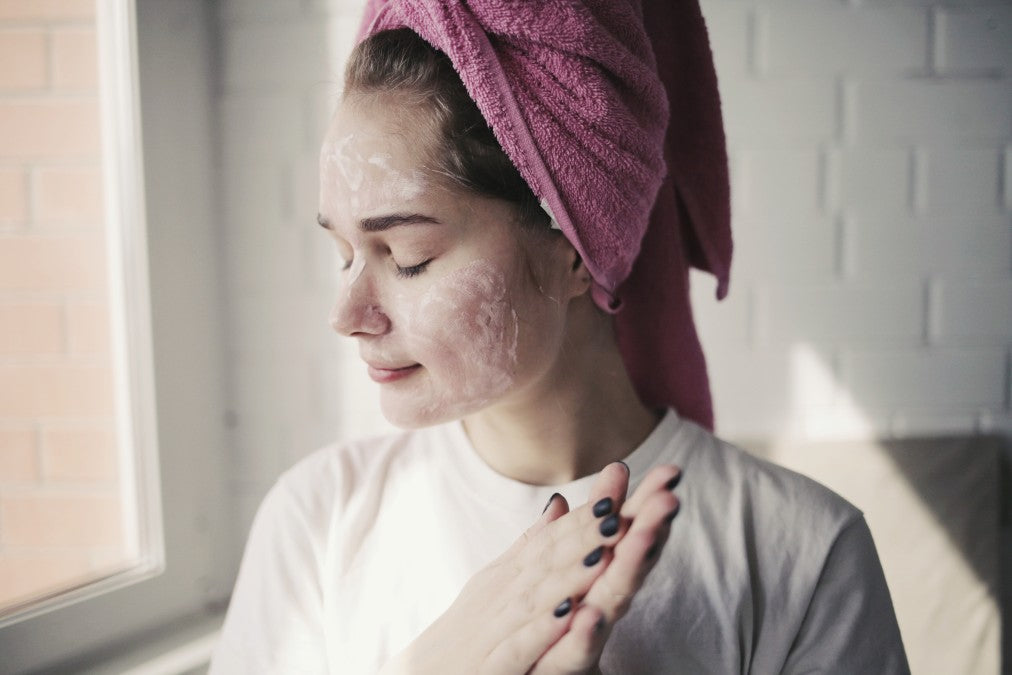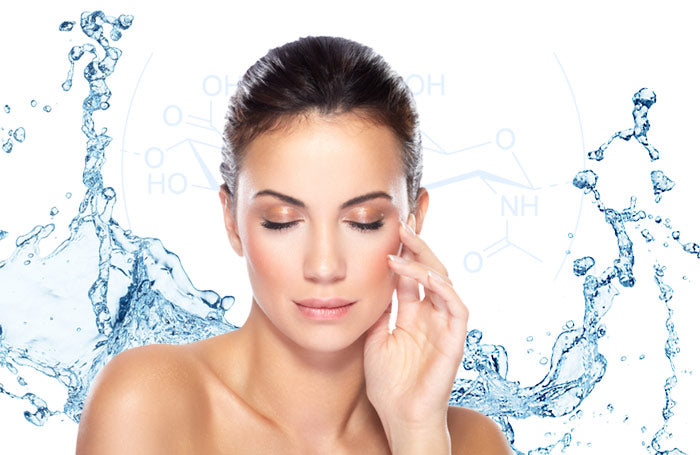
3 Berries with Incredible Skin Care and Health Benefits
The more you learn about modern natural skincare, the more it becomes clear that potent antioxidants are the key to anti-ageing benefits.
Cellular stress initiated by oxidation, mostly caused by UV exposure, is known to accelerate skin aging, which is characterised by wrinkles, leathery texture and brown pigmentation (age spots).[1]
A daily dose of antioxidants helps to prevent damage caused by oxidation and reverse some of the damage that’s already been done. You can consume antioxidants in your diet and you can apply them topically to your skin. Doing both is a win-win.
Berries are packed with antioxidants, such as anthocyanins, ellagic acid and resveratrol. There’s probably no better fruit to add to your breakfast bowl than frozen berries; freezing doesn’t reduce the antioxidant qualities of berries at all. And including berries in your daily skin care regime is a very smart idea too. If you add Okana Natural Berry Blend Night Moisturiser to your bedtime ritual, you’ll get the benefit of three types of berry extract: blackberry, raspberry and blueberry.
Blackberries

As a rule of thumb, the darker the berry, the more powerful the antioxidants. So blackberries really pack a punch, antioxidantly speaking. They contain vitamin C, anthocyanins, vitamin K and vitamin A.
Blackberry extract has been shown to protect skin from UVB damage through antioxidant activity.[2] The nthocyanins in blackberries also work to protect the keratinocytes (epidermal cells in the skin barrier) from UV damage.[3] On top of all this, the vitamin C in blackberries promotes collagen production and helps to decrease the chance of dry skin.
Raspberries

Raspberry extract is rich in ellagic acid, which has been shown to help prevent collagen destruction and inflammation following continued exposure to UVB. Other studies suggest it has a photoprotective effect, which means it helps the skin to cope with molecular damage caused by sunlight.[4]
Raspberries also contain tiliroside, which reduces melanin production and can help lighten, brighten and even out the colour of your complexion. Because of this ingredient, it’s common to find raspberry oil or extract in sunscreens.
Blueberries

Blueberries get a lot of good press. They are arguably the most super of all superfruits and there’s plenty of research to back up their benefits. Whether you eat them or rub them into your skin (via a skincare product or you’ll be bright purple!), blueberries deliver a potent mix of vitamins A, C and E[5]. These vitamins work together to assist cell turnover, which helps to firm and tighten your skin. Blueberries also contain resveratrol, an antioxidant that’s known to combat sun damage and the accelerated aging that comes with it. What’s more, blueberries are rich in anthocyanins, which are also powerful antioxidants.
Things you should know about photoaging
From what you now know about berries, most of their benefits are linked to antioxidant activity that helps to prevent or counteract the effects of sun damage, aka photoaging. Unlike chronological aging (the passage of time), photoaging depends on how much sun you’ve seen in your life. It also depends on how much melanin you have in your skin. If you’re of northern European descent, your melanin will be thin on the ground, so the risk of photoaging is higher – especially if you love doing things outdoors. If your DNA stems from a warmer part of the planet, you’ll have some natural melanin protection, but you can still experience photoaging – usually as mottling and wrinkles.
The most obvious strategies for preventing photoaging are avoiding direct sun on your skin at the times of day when UV is highest and wearing effective sunscreen. Daily use of sunscreen has even been found to reverse the damage caused by UV.[6]
Getting berries into your daily diet
If you’re using skincare that contains natural antioxidants and wearing sunscreen daily, there’s just one more thing you need to concentrate on: eating and drinking more antioxidants.
As we mentioned earlier, frozen berries are just as nutritious as fresh berries.[7] And they’re cheaper, so you can afford to eat some every day. Check out these ideas to up your berry intake:
- Add frozen berries to porridge
- Sprinkle frozen raspberries in any savoury salad – their sharpness goes perfectly with lettuce, capsicum, cucumber and tomatoes
- Make berry pancakes and muffins
- Use your blender to make a berry sauce to pour over cereal, ice cream or waffles (strain the pips out if you prefer a smooth sauce)
- Throw a handful of berries into any smoothie
- Add berries to your favourite cake recipe – from chocolate to banana, every cake is better with berries
- Make a healthy dessert with frozen berries and Greek yoghurt sweetened with a little honey
References
[1] https://www.ncbi.nlm.nih.gov/pubmed/20399614
[2] https://www.ncbi.nlm.nih.gov/pubmed/25680589
[3] https://www.ncbi.nlm.nih.gov/pubmed/21567508
[4] https://www.sciencedaily.com/releases/2009/04/090421154318.htm
[5] https://www.medicalnewstoday.com/articles/324943.php
[6] https://www.ncbi.nlm.nih.gov/pubmed/27749441
[7] https://www.sciencedaily.com/releases/2014/07/140722124810.htm




Leave a comment
This site is protected by hCaptcha and the hCaptcha Privacy Policy and Terms of Service apply.